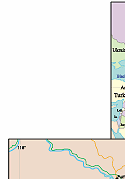 |
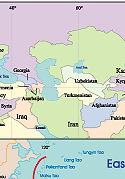 |
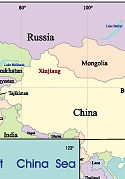 |
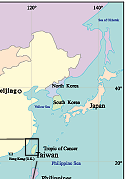 |
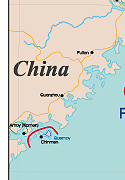 |
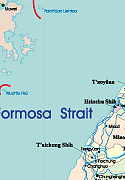 |
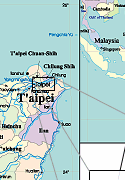 |
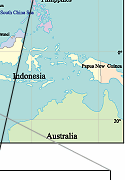 |
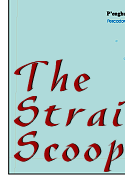 |
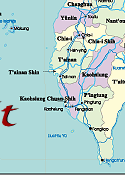 |
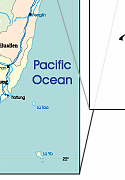 |
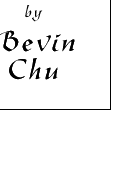 |
|
October 22, 1999 A Republic, Not an Empire: The Conventional Wisdom is Wrong, Dead WrongHYPERBOLE,
PARODY,
|
|
Bevin
Chu is an American architect of Chinese descent registered to practice
in Texas. Currently living and working in Taiwan, Chu is the son
of a retired high-ranking diplomat with the ROC (Taiwan) government.
His column, "The Strait Scoop," now appears Fridays at
Antiwar.com. Archived Columns A
Republic, Not an Empire: The Conventional Wisdom is Wrong, Dead
Wrong All
Politicians are Essentially Actors: Al Pacino, Ronald Reagan and
Lee Teng-hui Playing
Politics with Taiwan's Quake Victims
Taiwan's Great Earthquake and the Mandate of Heaven Taiwan's
Little Emperors Globocops
With Guillotines Taiwan
Independence and the Stockholm Syndrome Taiwan Independence and Free Lunches (8/31/99) |
WORLD WAR II, THE LAST GOOD WAR? NOT!"The essence of Buchananism is not anti-Semitism, or protectionism, or isolationism. The core belief that animates these derivative elements of Buchananism is that American government throughout the twentieth century has been a disgrace and a fraud. Buchanan is as much a Blame America First radical as the leftists of the late 1960s. His claim that the United States had no business getting into World Wars I and II follows from his belief that for the past hundred years, and right up till today, the American government has been hijacked by elite and ethnic interests that do America harm. He believes the American government stupidly and malevolently sent hundreds of thousands of men to their deaths. Today, he doesn't want America to lead the world because he doesn't think America is worthy of leading the world. He doesn't want to export our ideals because he doesn't believe in American ideals. For all of his reactionary nostalgia for an America that allegedly once was, he objects to the core principles of the American experiment. That's why, like the New Left, he objects to the American Century." ~William
Kristol, "A Party of Appeasement," Let me see if I got Kristol right "[Pat] Buchanan is as much a Blame America First radical as the leftists of the late 1960s." "[Pat Buchanan] doesn't want to export our ideals because he doesn't believe in American ideals." and finally "[Pat Buchanan's] claim that the United States had no business getting into World Wars I and II follows from his objections to the core principles of the American experiment." There you have it. Straight from the pen of William Kristol, self-appointed arbiter of who does or does not qualify as an American patriot. All this hyperbole. All this hysteria. All leveled at a fellow Republican no less, by William Kristol, a smug neocon laptop bombardier who wouldn't recognize a "core principle of the American experiment" if it bit him on the ass. As a hardline defender of laissez-faire capitalism I take exception to Buchanan's protectionism. As a Chinese-American I take exception to Buchanan's Eurocentric nativism. But I am not about to deliberately misrepresent what Buchanan stands for in order to avoid dealing with his unorthodox (but correct) premise about what constitutes a moral and practical American foreign policy. THE TREATY OF VERSAILLES AND THE RISE OF NAZI GERMANY"America should have minded her own business and stayed out of the World War . If you hadn't entered the war the Allies would have made peace with Germany in the Spring of 1917. Had we made peace then there would have been no collapse in Russia followed by Communism, no breakdown in Italy followed by Fascism, and Germany would not have signed the Versailles Treaty, which has enthroned Nazism in Germany. If America had stayed out of the war, all these 'isms' wouldn't today be sweeping the continent of Europe and breaking down parliamentary government – and if England had made peace early in 1917, it would have saved over one million British, French, American, and other lives." ~Winston
Churchill Interview with William Griffen, Churchill reminded Griffen that by spring of 1917 the warring nations were ready to sue for peace. Pyrhhric "victories" at Jutland, Verdun and the Somme had taken the fight out of Germany, Britain and France. Numerous peace overtures had already been put forth by Germany and Austria, and neutral Swedish, Danish and American negotiators were offering to act as mediators. But Woodrow Wilson wanted to "make the world safe for democracy." Woodrow Wilson was Commander in Chief of the Armed Forces of the World's Newest Superpower. Therefore Woodrow Wilson would get his "War to End All Wars." The rest, as they say, is history. VICTORIES OVER YOUR OWN MEMORYWinston Churchill's history lesson grated on the Wilsonian Globocops' ears, so it was dropped down the Memory Hole, as if it never happened at all. Today we are monotonously subjected to simplistic and ignorant "history lessons" comparing nonintervention to Chamberlainesque "appeasement" and intervention to Churchillian "firmness." As a different Winston, this one fictional, put it: "The Party said that Oceania had never been in alliance with Eurasia. He, Winston Smith, knew that Oceania had been in alliance with Eurasia as short a time as four years ago. But where did that knowledge exist? Only in his own consciousness, which in any case must soon be annihilated. And if all others accepted the lie which the Party imposed – if all records told the same tale – then the lie passed into history and became truth. 'Who controls the past,' ran the Party slogan, 'controls the future: who controls the present controls the past.' And yet the past, though of its nature alterable, never had been altered. Whatever was true now was true from everlasting to everlasting. It was quite simple. All that was needed was an unending series of victories over your own memory. 'Reality control', they called it: in Newspeak, 'doublethink.'" ~Winston
Smith, Ministry of Truth COMMODORE PERRY'S TREATY OF KANAGAWA AND THE RISE OF JAPANESE FASCISM"But what about fascist Japan during the Thirties?" a Humanitarian Interventionist huffily demanded of me in an email. "Of course you oppose American intervention today, now that China is being unfairly being set up by American Triumphalists as the New Evil Empire. But I'll bet you would have sung a different tune if this were 1937 and Japan was in the middle of the Rape of Nanking." Well, what about fascist Japan during the Thirties? Again, as with Nazi Germany, the answer is not hysteria, but history. Not "the lie passed into history [which] became truth," but "the past [which] though of its nature alterable, never had been altered." Selectively plucking historical events out of their larger historical context hardly qualifies as genuine respect for history. Consider this American account of Admiral Perry's "Opening" of Japan: "An avowed American expansionist, Perry believed that 'our people must naturally be drawn into the contest for empire.' Perry prepared diligently for the formidable task of inducing Japan to negotiate a document advantageous to the United States. In 1846, Japan... expelled an American emissary, leading Perry to conclude that a resolute show of force would prove essential to the "opening" of Japan. On July 8, 1853, Perry stormed boldly into Edo (Tokyo) Bay. The Japanese resisted Perry's proposals, and he temporarily withdrew... "Perry returned with seven warships, three of them steam driven... To impress the Japanese with American technological and military might, he exhibited a quarter-scale steam locomotive, a telegraph apparatus by Samuel Morse, a daguerreotype camera, and an illustrated history of the Mexican War, featuring the American naval bombardment of Veracruz. The Japanese yielded, and on March 31, 1854, they signed the Treaty of Kanagawa, [which] established American consular privileges... and granted most-favored-nation trading status to the United States." [So that's how one gets MFN. Somebody memo Bill Kristol.]
~Bell & Howell Information and Learning Great Events: Now consider this Japanese account: "In 1638, [Tokugawa Iemistu, the third shogun] ordered the country closed to all foreign countries but China and Holland. This policy of isolation was called sakoku, and lasted until... Admiral Perry arrived... to open Japan's doors. This two century period greatly influenced the culture and the mentality of Japanese. Two centuries of peace made the Japanese military weak. There were very few naval forces to stop the four steamships. So the shogunate had no choice other than to abandon the policy of sakoku. Japan was suddenly dragged onto the stage of worldwide imperialist politics. [Emphasis added.] The shogunate had almost no diplomatic experience with foreign countries. So the commerce treaty concluded with the United States was very unfavorable to Japan... Today, most historians consider the arrival of Perry the trigger that caused the fall of Edo Shogunate" [and the rise of Japanese fascism.] ~History
of Japan, And the following American account: "The Japanese were impressed with the sophisticated American military technology which forced them to give up their isolation in 1854. The shogunate system was abolished – the Shogun being the military leader of Japan, who could not successfully cope with the American fleet. Emperor Meiji responded to this situation by changing his policy toward the west... reflected in the Charter Oath which... represented a major shift in government policy from the previous 'seclusion" period.'" ~
East Asia Global Studies: Japanese militarists were quick studies. They would rapidly adopt not only the technology, but the ideology of this "avowed American expansionist" who forced unwelcome change on their society at gunpoint. Japanese militarists soon came to believe that "our people must naturally be drawn into the contest for empire." China and Korea, Japan's peaceful and oblivious neighbors, would soon pay a heavy price for Perry's imperialistic arrogance. Japanese History: Overview:
~Schauwecker's Guide to Japan THE LAW OF UNINTENDED CONSEQUENCESConcerned Americans with the intellectual integrity to consult the historical record without indulging in selective recall can confirm for themselves that the Conventional Wisdom about "proactive" global intervention, like the Conventional Wisdom about just about everything else, is dead wrong. American intervention in Europe during the final stages of WWI led to the unjustly punitive Treaty of Versailles, and contributed to the rise of Nazi Germany. American intervention in Japan during the mid-nineteeth century led to the Unequal Treaty of Kanagawa, and contributed to the rise of fascist Japan. American intervention in Kosovo during the late 1990's resulted in the outrageous Rambouillet Accord and the rise of KLA fascism. Medical students are inculcated with an important precept in medical school: "First, do no harm." They are sternly admonished to refrain from impetuous medical "intervention" which might do more harm than good, to resist the powerful temptation to "do something." Economics majors enrolled in free market oriented departments of economics are taught countless variations of the Law of Unintended Consequences. They learn how minimum wage laws leave minority youths unemployed and price controls result in either gluts or shortages. It is high time our federal Leviathan stopped hurtling into the future with our cruise control set on "Intervene." It is high time American policymakers spent five minutes thinking about the Law of Unintended Consequences before succumbing to the impulse to play World Policeman just one more time. It is high time modern Americans began entertaining the notion that our Founding Fathers might have been right about the hazards of global intervention, and the Benevolent Global Hegemonists' Conventional Wisdom just might be wrong. Dead wrong.
Please Support Antiwar.comA contribution of $20 or more gets you a copy of Justin Raimondo's Into the Bosnian Quagmire: The Case Against US Intervention in the Balkans, a 60-page booklet packed with the kind of intellectual ammunition you need to fight the lies being put out by this administration and its allies in Congress. Send contributions to Antiwar.com or
Contribute Via our Secure Server |
